Les films ayant le thème "Documentaire sur la discrimination", triés par recette
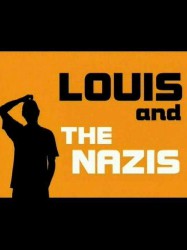 , 1h20
, 1h20Origine Royaume-uni
Genres Documentaire
Thèmes Le racisme, Documentaire sur la discrimination, Documentaire sur le droit, Documentaire sur une personnalité
Acteurs Louis Theroux
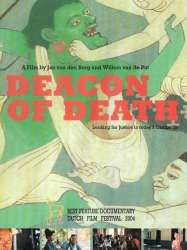
Deacon of Death (2005)
Genres Documentaire
Thèmes Le racisme, Documentaire sur la discrimination, Documentaire sur le droit, Documentaire sur la guerre, Documentaire historique, Documentaire sur une personnalité

Home of the Brave (2004)
, 1h15Origine Etats-Unis
Genres Documentaire
Thèmes Le racisme, Documentaire sur la discrimination, Documentaire sur le droit, Documentaire historique, Documentaire sur une personnalité, Documentaire sur la politique, Politique
Acteurs Stockard Channing, Gloria Steinem

Monkey Dance (2004)
Réalisé par Julie Mallozzi
Thèmes L'enfance, L'immigration, Le racisme, Documentaire sur la discrimination, Documentaire sur le droit, Documentaire sur la guerre, Documentaire historique, Documentaire sur une personnalité

Armenian Genocide (2006)
, 1hRéalisé par Andrew Goldberg
Origine Etats-Unis
Genres Documentaire, Historique
Thèmes Le racisme, Documentaire sur la discrimination, Documentaire sur le droit, Documentaire sur la guerre, Documentaire historique, Documentaire sur une personnalité, Politique
Acteurs Laura Linney, Julianna Margulies, Orlando Bloom, Natalie Portman, Louis Zorich, Ed Harris
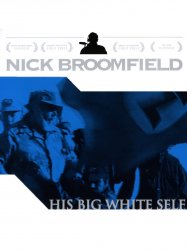
His Big White Self (2006)
, 1h25Réalisé par Nick Broomfield
Genres Documentaire
Thèmes Afrique post-coloniale, Le racisme, Documentaire sur la discrimination, Documentaire sur le droit, Documentaire sur une personnalité, Documentaire sur la politique, Politique
Acteurs Nick Broomfield
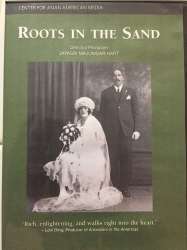
United Gates of America (2007)
, 1hOrigine Royaume-uni
Genres Documentaire
Thèmes L'immigration, Le racisme, Documentaire sur la discrimination, Documentaire sur le droit, Documentaire sur une personnalité, Documentaire sur les villes
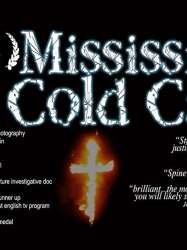
Mississippi Cold Case (2007)
, 42minutesOrigine Canada
Genres Documentaire
Thèmes Le racisme, Documentaire sur la discrimination, Documentaire sur le droit, Documentaire historique, Documentaire sur une personnalité, Documentaire sur la politique, Politique
 , 1h5
, 1h5Origine Canada
Genres Documentaire
Thèmes L'enfance, Le racisme, Religion, Documentaire sur la discrimination, Documentaire sur le droit, Documentaire sur la guerre, Documentaire historique, Documentaire sur une personnalité, Documentaire sur la religion, Politique, Religion juive, Documentaire sur la Seconde Guerre mondiale
The documentary tells the story of Chief Justice Inspector Friedrich Kellner and the ten-volume secret diary he wrote during World War II in Laubach, Germany, to record the misdeeds of the Nazis. The movie uses reenactments and archival footage and interviews to recount the lives of Friedrich Kellner, who risked his life to write the diary, and of his orphaned American grandson, Robert Scott Kellner, who located his grandparents in Germany, and then spent much of his life bringing the Kellner diary to the public.

Nazi Pop Twins (2007)
Genres Documentaire
Thèmes La musique, Le racisme, Documentaire sur la discrimination, Documentaire sur le droit, Documentaire sur la musique, Documentaire sur une personnalité, Documentaire sur la politique, Musique, Politique

Réalisé par Gail Dolgin
Genres Documentaire, Historique
Thèmes Le racisme, Documentaire sur la discrimination, Documentaire sur le droit, Documentaire sur la guerre, Documentaire historique, Documentaire sur une personnalité, Documentaire sur la politique, Documentaire sur la santé, Politique

Dark Girls (2011)
Réalisé par Bill Duke
Origine Etats-Unis
Genres Documentaire
Thèmes Le racisme, Documentaire sur la discrimination, Documentaire sur le droit, Documentaire sur une personnalité

Meeting David Wilson (2008)
Genres Documentaire
Thèmes Esclavagisme, Le racisme, Documentaire sur la discrimination, Documentaire sur le droit, Documentaire historique, Documentaire sur une personnalité

The Slanted Screen (2006)
Genres Documentaire
Thèmes Le racisme, Documentaire sur le monde des affaires, Documentaire sur le cinéma, Documentaire sur la discrimination, Documentaire sur le droit, Documentaire sur une personnalité
Acteurs Frankie Chan, Kelvin Han Yee, Bobby Lee, Jason Scott Lee, Will Yun Lee, Tzi Ma

Portrecista (2005)
, 52minutesGenres Documentaire
Thèmes Le racisme, Religion, Documentaire sur l'art, Documentaire sur la discrimination, Documentaire sur le droit, Documentaire sur la guerre, Documentaire historique, Documentaire sur une personnalité, Documentaire sur la religion, Politique, Religion juive, Documentaire sur la Seconde Guerre mondiale
Portrecista (The Portraitist) examines the life and work of Wilhelm Brasse, who had been trained as a portrait photographer at his aunt's studio prior to World War II and passionately loved taking photographs. After his capture and imprisonment by the Nazis at Auschwitz concentration camp in 1940, at the age of 23, he was forced to take "identity pictures" of between approximately 40,000 to 50,000 other inmates between 1940 and 1945. With "courage and skill", documenting "cruelty which goes beyond all words ... for future generations", after his liberation at the end of World War II, Brasse "could not continue with his profession" and would never take another photograph.
 Connexion
Connexion